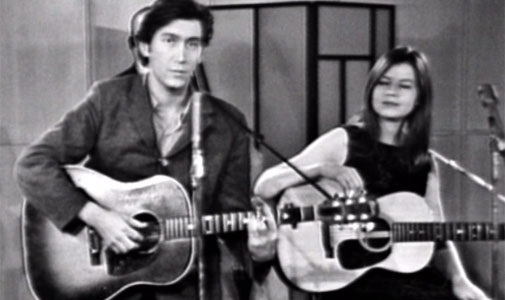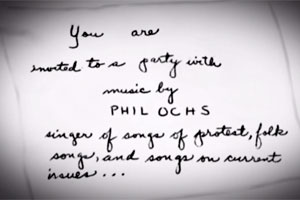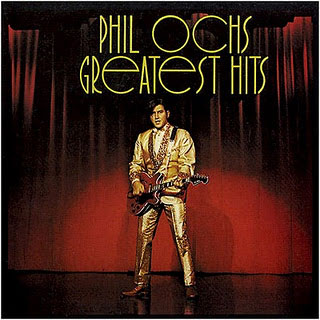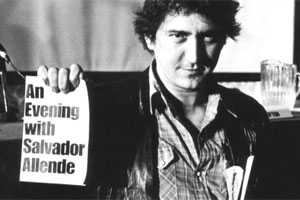
Impressively -- and amazingly -- the PBS American Masters series has been examining popular art and profiling gifted artists for a quarter of a century. And now, to start Season 26, it turns it attention to yet another worthy, inspirational figure: talented, tragic folksinger Phil Ochs...
Phil Ochs: There But for Fortune, a 2010 documentary written and directed and co-produced by Kenneth Bowser, premiering Monday at 10 p.m. ET (check local listings) will please and inform those who are fans of his musical canon, and impress and win over those coming to his music, and his story, for the first time.
If you know the work of Phil Ochs, or if you don't, you should watch this program. Anyone not covered by those two categories can feel free to skip it.

Ochs was a contemporary of, and in unavoidable competition with, Bob Dylan when both started out singing their folk songs in Greenwich Village in the early Sixties. Dylan became the king of folk music, then went electric and left overtly political songwriting behind, all in the course of a few years. Ochs held to his original course -- and their two stories ended up very, very differently.
Pete Seeger, one of many interviewed for There But for Fortune, recalls championing both of those young songwriters in their early days in New York.
"I once went up to a little magazine called Broadside," Seeger says, "and I invited both Bob Dylan and Phil Ohs to come up there with me. And I sat back listening to song after song that they'd just written within the last few weeks.
"And I thought to myself, here I am with two of the greatest songwriters in the world. And someday, they'll be famous. But right now, nobody is printing them, except this little mimeographed magazine -- 500 copies!"
Ochs never did achieve the success or fame of Dylan, though such songs as "Draft Dodger Rag," "I Ain't Marching Anymore," and "Crucixifion" had a measurable impact in their time.

Ochs, at one point in his career, had such a good sense of humor about his own pop-culture standing that he released an album called Phil Ochs' Greatest Hits, adorned with a photo of him wearing a gold lame Elvis-style suit.
Ochs thought this was funny, he explained, "since I never had any hits." He even went out on tour wearing the suit, in a proto-Andy Kaufman-type stunt, but many audience members didn't get the joke. "Bring back Phil Ochs!" one audience member screamed at his Carnegie Hall concert -- echoing screams of "Judas!" aimed at Dylan went he went electric.
But those who got Phil Ochs really respected his commitment and his artistry, and gather in this one-hour documentary to explain why.
The roster of fervent Ochs enthusiasts includes not only fellow folk travelers such as Seeger, Joan Baez and Peter Yarrow, but Tom Hayden, Sean Penn and -- especially poignant because of his recent death -- Christopher Hitchens.
Here's a brief clip to suggest why. It's not from the documentary, but this YouTube clip of Ochs singing "I Ain't Marching Anymore," intimately and in the round, presents him well -- and in a complete performance:
There But for Fortune covers Och's musical career, but also his political commitment -- culminating in his outrage at clandestine CIA policies in Chile, which led to him organizing a benefit concert to support the Chilean political refugees stranded and potentially targeted after a military coup that assassinated the country's pacifist leader.

It was a concert that sold out at Madison Square Garden -- and on which Ochs shared the bill with, among others, Bob Dylan.
This American Masters presentation doesn't shy away from Och's bipolar disorder, and the occasional bouts of depression that eventually led to his suicide, at age 35. They're all part of the man's deep, dark history, and his singular, sincere perspective.
Not many television programs, over the decades, have opted to focus on Phil Ochs.
It's not surprising that American Masters has -- or that the series has done it so well.